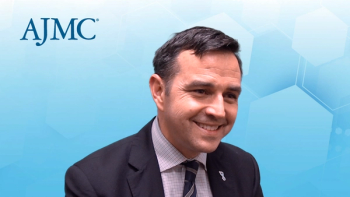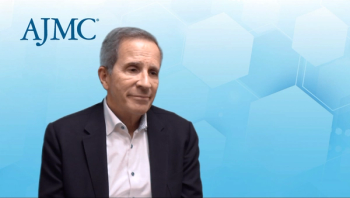
Dr Ashley Ross on the Potential for Targeted Therapies Earlier in Prostate Cancer Treatment
Ashley Ross, MD, urologist and associate professor at the Northwestern University Feinberg School of Medicine, gives insight on the potential for PARP inhibitors in earlier disease settings for prostate cancer.
Transcript
As you look forward, do you see PARP inhibition being utilized earlier in the course of treatment, as some have suggested?
In terms of moving PARP inhibitors or other precision medicines earlier in treatment, it definitely needs to be explored, and I do personally think that it will make its way into the early space. I mean, some of the things to think about are that PARP inhibitors are an oral drug, but it still is chemotherapy. It can still cause side effects—cytopenias, it can still cause GI issues. Taken long term, it might have an increased risk of hematologic malignancies associated with it. And so, as we go to the earlier space, men are going to be surviving longer with their prostate cancer and are surviving longer after the treatment of prostate cancers. And some of the push for well-performed clinical trials are to tackle some of the issues of: How long should that therapy be? How does it work with in a combination with androgen deprivation therapy? Can you expand this out with androgen deprivation therapy, which also affects DNA repair? Can you expand it out to populations that don't have mutations in the DNA damage repair genes?
I do think you are going to see it moving to the earlier space—hormone-sensitive metastatic prostate cancer, for sure, and maybe even some locally advanced disease. But I think the best setting for that is probably going to be clinical trials. Where I hope things will go is a smarter and more permissive design of clinical trials, perhaps with an adaptive design, too. And I think that is the way that the world is going, so you can basically not have to wait 5 to 10 years to get your information, but use surrogate end points, and use adaptive design so that you can build on previous men who are enrolled. I think we are going to see earlier use of targeted therapeutics. It’s really about not forgetting that these still can have some toxicity and trying to balance that out.
Newsletter
Stay ahead of policy, cost, and value—subscribe to AJMC for expert insights at the intersection of clinical care and health economics.









